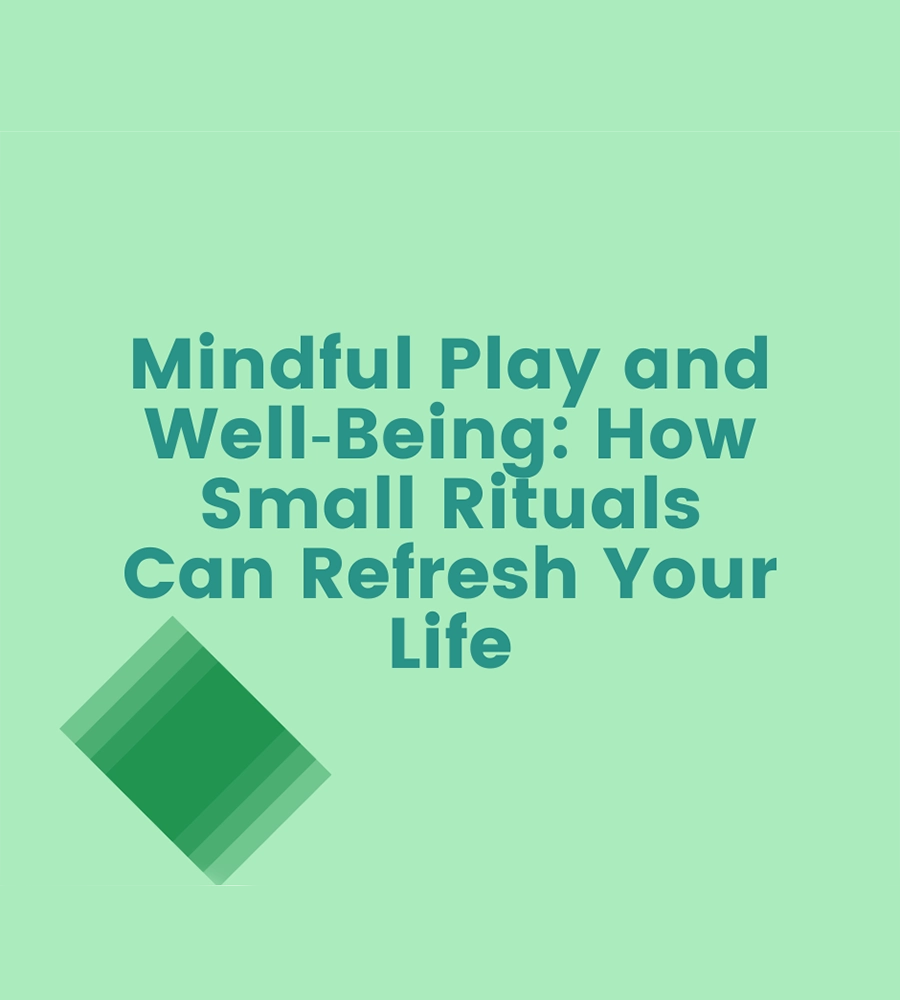Adults often overlook the healing power of play when focusing mainly on exercise, nutrition, or meditation. In reality, integrating light, purposeful activities into daily routines can boost mental resilience, relieve stress, sharpen cognition, and enrich our emotional lives. Whether it’s spending ten minutes on a creative puzzle, taking a scenic walk, or playing an exciting Thimbles game, these micro‑breaks help rejuvenate the mind and body, acting as daily resets to support long-term mental fitness.
The Science Behind Casual Gaming for Mental Health
Research shows that casual, non-competitive games can reduce anxiety, improve mood, and support cognitive function. This is evident in video games like Stardew Valley or Animal Crossing, which helped players unwind during pandemic lockdowns. You may even stumble across a King Thimbles game review in a crash casino game platform and still feel its meditative, focused‑attention benefits. Such gameplay encourages gentle decision‑making and mild excitement without undue risk or pressure. It creates a small mental space where one can reset and re-centre, which is crucial in our overstimulated routines.
Your Digital Mind‑Break Toolkit
In our hectic lives, choosing the right kind of digital activity is key. Consider this helpful list:
- Casual puzzle apps (e.g., crosswords, sudokus) promote mental agility and logical processing.
- Mindful games (e.g, forest‑planting simulators) foster relaxation, focus, and psychological calm.
- Low‑stimulus memory games strengthen attention span and short-term retention without overstimulation.
These experiences support mood, focus, and stress relief by engaging the brain artfully. Unlike intense gaming, they build resilience rather than dependence. Even a few minutes of thoughtfully chosen gameplay can ease transitions between tasks or create a healthy pause during high-pressure days.
Adding Slots Without Losing Balance
A brief, mindful session with slots can feel like a harmless distraction when kept in check. Opting for simple, calm platforms — such as Thimbles casino titles — may offer short diversions. This can work when framed as intentional micro‑play: view it as a momentary mental pause rather than a thrill‑chaser. Responsible usage is essential, especially since complex gambling environments can exploit attention vulnerabilities. Used correctly, these games can occupy a similar niche to digital puzzles — quick to engage, easy to exit, and not emotionally draining.

Benefits at a Glance
| Benefit | How It Helps | Example |
| Stress reduction | Lowers cortisol, shifts focus | A few minutes with a calming game |
| Cognitive engagement | Fuels creativity and problem-solving | Puzzle apps and simulation games |
| Mood enhancement | Provides dopamine boosts and flow | Casual play after work |
| Mental restoration | Enables attention recovery | Short mindful breaks in green spaces or apps |
Building a Balanced Micro‑Play Routine
Creating a mindful play habit begins with understanding when and how to engage. Timing is key. Introducing 10 to 15 minutes of gentle play either at the start or end of your day can set a calming tone or help decompress after mental exertion. These brief sessions work especially well as transitions, bridging the gap between work and relaxation, or between tasks that require different cognitive loads. They serve not only as breaks but also as intentional resets for the mind.
Equally important is choosing the right type of game. Opt for mentally restorative experiences, such as puzzles, creative apps, or calming simulations. These games promote focus and stress relief without overstimulation. For those who enjoy slots or similar formats, moderation is crucial. Think of them as occasional novelties, best used sparingly and without emotional investment or expectation.
This structured, intentional approach ensures that digital play enhances rather than disrupts. It aligns closely with techniques in cognitive behavioural therapy, where scheduled positive activities are used to support emotional regulation and build resilience.
When Micro‑Play Becomes Macro Impact
Stacking small mental‑wellness actions can create tangible improvements. Research confirms that leisure grounded in autonomy and mental stimulation improves subjective well‑being. Adult play supports creativity at work, helps alleviate burnout, and enhances social bonding. During the pandemic, playful rituals like digital gardening, jigsaws, or casual gaming helped thousands reduce stress and reconnect with a sense of joy. These small habits restore a sense of control and mindfulness in increasingly fragmented daily schedules.
Real‑Life Practices to Try
- Nature plus digital: Walk in the park and follow with a mindfulness app or a light puzzle.
- Game sharing as bonding: Play a casual mobile game with a friend or family member.
- Reflect on your breaks: After micro-play, notice changes in mood, focus, or calm.
Adding these practices to your weekly rhythm doesn’t require big changes — it’s about being more intentional with the time you already use on screens and rest.
Final Thoughts

Well‑being thrives through balance, not only in food or exercise but also in mental self‑care. Intentional micro‑play, whether through puzzles, mindfulness tools, or even a measured session with slots, can support stress relief, cognitive clarity, and emotional renewal. When guided by self-awareness and structure, these light rituals become a powerful ally in nurturing a calm and resilient mind.







